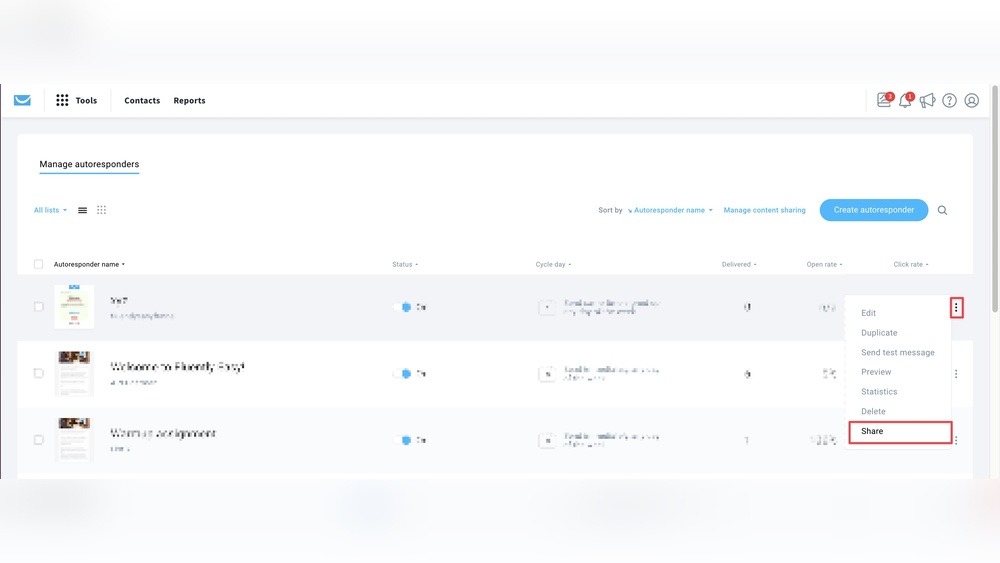Managing cash flow is one of the biggest challenges you face as a startup founder. Without steady cash flow, even the best ideas can stall.
But what if you could take control with the right business banking tools designed to simplify this critical task? You’ll discover how to use these tools to monitor your finances, avoid cash crunches, and keep your startup running smoothly. Ready to unlock smarter cash flow management and give your business the financial edge it needs?
Let’s dive in.

Credit: www.cpajournal.com
Cash Flow Challenges
Cash flow challenges often test the resilience of startup founders. Managing money coming in and going out can be tricky, especially in the early stages. Understanding these challenges helps founders make smarter decisions. Business banking tools offer support but knowing the problem is the first step.
Common Issues For Startups
Startups face irregular income streams that make cash flow unpredictable. Late payments from customers create gaps in funds. Unexpected expenses often arise without warning. Limited access to credit can tighten cash availability. Poor cash flow tracking leads to missed financial insights. Many startups struggle to balance spending with income.
Impact On Growth And Operations
Cash flow problems can slow down product development and hiring. Without steady funds, marketing efforts may stall. Suppliers might delay shipments due to unpaid bills. Growth opportunities often get missed because of cash shortages. Daily operations suffer when funds run low. Maintaining positive cash flow is vital for steady progress.

Credit: blog.mindvalley.com
Essential Banking Tools
Essential banking tools help startup founders manage cash flow smoothly. These tools provide control, visibility, and ease in handling money. Choosing the right tools saves time and reduces errors. They also improve cash flow forecasting and payment management. Founders can focus more on growing their business with these tools in place.
Business Checking Accounts
Business checking accounts keep startup funds separate from personal money. They simplify tracking income and expenses. Many banks offer accounts with no monthly fees or minimum balance. Instant alerts notify founders about account activity. This helps avoid overdrafts and fraud. Easy online access lets founders manage money anywhere.
High-yield Treasury Accounts
High-yield treasury accounts help startups earn interest on idle cash. These accounts offer better returns than regular savings accounts. They provide a safe place to park funds for short-term needs. Founders can boost their cash reserves without risk. The money remains liquid and accessible when needed. It supports building a financial buffer for the business.
Payment Scheduling Features
Payment scheduling features automate bill and payroll payments. Founders can set dates for payments to avoid late fees. Scheduled payments improve cash flow planning and forecasting. They reduce manual work and mistakes in payment processing. Many banking platforms offer reminders and recurring payment options. This ensures vendors and employees get paid on time.
Cash Flow Strategies
Managing cash flow is vital for startup founders. Cash flow strategies help keep money moving and cover daily expenses. Using smart business banking tools supports these strategies. Founders can secure their startup’s future by applying simple, effective methods.
Maintaining Cash Reserves
Cash reserves act as a safety net for startups. Founders should save enough money to cover at least three months of expenses. This reserve helps handle unexpected costs or slow sales periods. Keeping cash reserves in a separate, easily accessible bank account is wise. It ensures funds are available when urgently needed.
Negotiating Payment Terms
Good payment terms improve a startup’s cash flow. Founders can negotiate longer payment deadlines with suppliers. This delay allows more time to earn revenue before paying bills. On the customer side, offering discounts for early payments encourages faster cash inflow. Clear communication about payment expectations avoids confusion and late payments.
Automating Payments And Invoicing
Automation saves time and reduces errors in cash flow management. Founders can use banking tools to automate bill payments and send invoices. Scheduled payments prevent late fees and maintain a good credit score. Automated invoicing speeds up payment collection from clients. These tools provide real-time tracking and help keep finances organized.
Financial Management Software
Financial management software plays a key role in how startup founders control their cash flow. It helps track money coming in and going out. This software simplifies complex financial tasks. Founders can make smarter decisions based on real-time data. It reduces errors and saves time, which is vital for startups with limited resources. Many tools offer features that connect directly with business banking accounts. This connection makes managing finances seamless and efficient. Startups gain a clear view of their financial health and can plan for the future with confidence.
Cash Flow Forecasting Tools
Cash flow forecasting tools predict future cash inflows and outflows. They help founders see potential shortages or surpluses ahead of time. This foresight allows businesses to adjust spending or seek funding early. These tools often use historical data and upcoming transactions. Startups can create scenarios to test how changes affect their cash flow. Forecasting reduces surprises and helps maintain steady operations. It is essential for avoiding missed payments or overdrafts.
Integration With Banking Systems
Integration with banking systems means the software links directly to business bank accounts. This connection imports transactions automatically. It reduces manual entry and errors in financial records. Founders can see real-time balances and recent activities. Integration also speeds up reconciliation, matching payments with invoices quickly. Many financial tools support multiple banks and currencies. This feature is helpful for startups working with international clients or suppliers.
Reporting And Analytics
Reporting and analytics provide detailed insights into a startup’s financial status. Founders get clear reports on cash flow, expenses, and income. Analytics highlight trends and areas needing attention. Visual charts and summaries make complex data easy to understand. These insights support better budgeting and financial planning. They also help communicate financial health to investors and partners. Regular reports ensure founders stay informed and in control of finances.
Fraud Protection Measures
Protecting your startup’s money is vital. Fraud can drain your cash fast and harm your business. Using fraud protection measures helps keep your funds safe. Business banking tools include features to guard against fraud. These tools help founders detect and stop suspicious activity early. Understanding these measures can improve your cash flow management.
Bank Security Features
Banks use strong security to protect accounts. Encryption hides your data during transactions. Two-factor authentication adds a second step to log in. This makes it harder for hackers to access your account. Some banks offer virtual cards for online purchases. These cards reduce the risk of exposing your main account. Firewalls and secure servers block unauthorized access. Regular security updates keep the system safe from new threats.
Monitoring And Alerts
Business accounts offer monitoring tools to track activity. You can set alerts for unusual transactions. Alerts notify you by email or text immediately. This quick notice helps you respond to fraud fast. Monitoring tools often show detailed transaction histories. You can review spending and spot errors or scams. Some banks provide real-time monitoring dashboards. Staying informed supports better cash flow control.

Credit: mercury.com
Bootstrapping And Funding
Bootstrapping and funding are crucial strategies for startup founders managing cash flow. Many startups begin with limited funds, relying on personal savings or small loans. Funding rounds, grants, and investor money can follow as the business grows. Both approaches require careful cash management to keep the startup alive and growing.
Managing Cash With Limited Resources
Startups often face tight budgets in their early stages. Founders must track every dollar spent and earned. Using business banking tools helps monitor transactions in real time. Simple budgeting and expense tracking prevent overspending. Many banks offer apps that alert users about low balances or unusual activity. These tools save time and reduce errors.
Founders should separate personal and business finances to avoid confusion. Business bank accounts designed for startups provide this separation. Some accounts have no fees or minimum balance requirements. This feature helps founders avoid extra costs while managing cash carefully.
Extending Runway Through Smart Banking
Smart banking can extend a startup’s financial runway. High-yield savings accounts allow startups to earn interest on idle cash. Automated payment schedules help avoid late fees and maintain good vendor relationships. Some banks offer cash flow forecasting tools that predict future balances. This foresight helps founders plan expenses and investments wisely.
Choosing the right banking partner can unlock useful features like fraud protection and financial reporting. These tools increase security and provide clear insights into cash flow trends. Founders who use these banking resources can make informed decisions and stretch their funds further.
Case Studies
Case studies offer real examples of how startup founders handle cash flow challenges. They show practical ways business banking tools support financial management. Understanding these stories helps new entrepreneurs learn from others’ experiences.
These case studies focus on startups that faced cash flow issues and how they used banking tools to improve their situation. They reveal key lessons from founders who successfully managed their finances and kept their businesses running smoothly.
Startups Overcoming Cash Flow Issues
One startup in Austin struggled with delayed customer payments. They used their bank’s invoicing tool to send faster, clearer bills. This reduced the payment cycle from 60 days to 30 days.
Another company used automated payment scheduling to avoid late fees. The bank’s app helped them track expenses and plan payments. This gave better control over outgoing cash.
Several startups kept a cash reserve in a high-yield account. This small buffer covered unexpected costs without disrupting operations. It proved vital during slow sales months.
Lessons From Successful Founders
Successful founders stress the importance of regular cash flow reviews. They recommend using financial reports from their banking platform weekly. This helped spot issues early and adjust spending.
Many used business credit cards with expense tracking features. This simplified budgeting and helped separate personal and business expenses. Clear records made tax time easier and more accurate.
Founders advise negotiating payment terms with vendors. Extending payment deadlines improved cash on hand. Meanwhile, faster customer payments increased incoming cash flow.
Frequently Asked Questions
How Do Startup Founders Manage Cash Flow Effectively?
Startup founders track income and expenses closely using business banking tools. They forecast cash flow regularly to avoid shortages and negotiate payment terms with vendors to improve liquidity.
What Business Banking Tools Help Manage Cash Flow?
Tools like online banking, payment scheduling, and cash flow forecasting software help startups automate transactions, monitor balances, and predict financial needs accurately.
Why Is Cash Flow Forecasting Important For Startups?
Forecasting helps founders anticipate cash shortages, plan expenses, and make informed financial decisions. It ensures the startup can cover operating costs and invest in growth.
How Can Startups Improve Cash Flow With Banking Features?
Startups can use features like automated payments, high-yield treasury accounts, and fraud protection to optimize cash flow and secure their finances efficiently.
Conclusion
Managing cash flow remains a key challenge for startup founders. Using business banking tools helps track income and expenses clearly. These tools simplify payment scheduling and cash flow forecasting. Keeping a cash reserve adds extra safety for tough times. Regularly reviewing financial reports keeps founders informed and ready.
Smart use of banking features can prevent common cash flow problems. Simple, consistent actions support steady business growth. Founders who stay organized manage cash flow more confidently and effectively.







